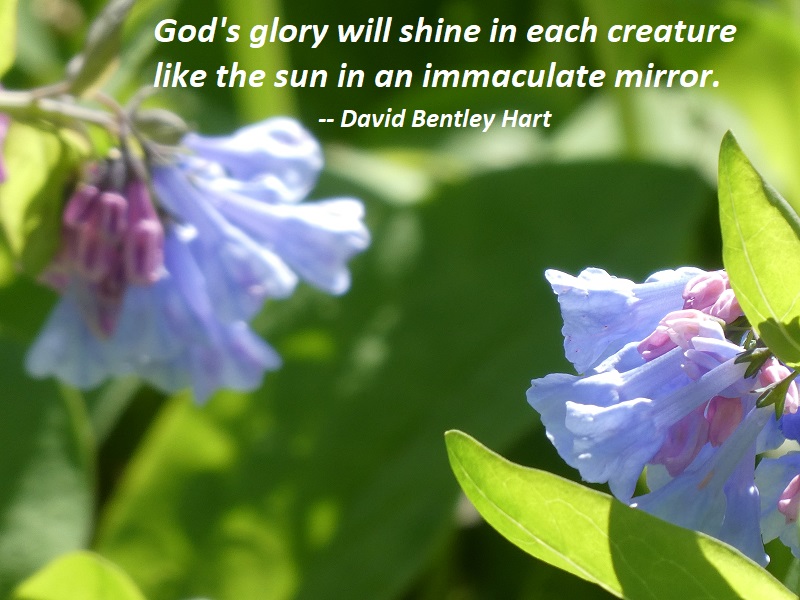As Gregory [of Nyssa] argues in On the Making of Humanity, evil is inherently finite — in fact, in a sense, is pure finitude, pure limit — and so builds only toward an ending; evil is a tale that can have only an immanent conclusion; and, in the light of God’s infinity, its proper end will be shown to be nothing but its own disappearance. Once it has been exhausted, when every shadow of wickedness — all chaos, duplicity, and violence — has been outstripped by the infinity of God’s splendor, beauty, radiance, and delight, God’s glory will shine in each creature like the sun in an immaculate mirror, and each soul — born into the freedom of God’s image — will turn of its own nature toward divine love. There is no other place, no other liberty; at the last, to the inevitable God humanity is bound by its freedom. And each person, as God elects him or her from before the ages, is indispensable, for the humanity God eternally wills could never come to fruition in the absence of any member of that body, any facet of that beauty. Apart from the one who is lost, humanity as God wills it could never be complete, nor even exist as the creature fashioned after the divine image; the loss of even one would leave the body of the Logos incomplete, and God’s purpose in creation unaccomplished.
— David Bentley Hart, That All Should Be Saved, p. 143-144
Photo: Hemlock Overlook Regional Park, Virginia, April 6, 2020
